The iPhone XR Is Apple's Top Phone, and Other iPhone Sales Secrets
We know that Apple sold fewer iPhones during the holidays than it did the previous year. But digging into Apple's sales figures tells us so much more about the company's phones.
It was the second-best of times, it was the worst of times. The last three months of 2018 comprised Apple's second-largest fiscal quarter of all time ... but it was smaller than the year-ago quarter. And no amount of rising services revenue or record-setting iPad and Mac installed-base figures can offset the fact that the iPhone — which makes up nearly two-thirds of Apple's revenue — was down.
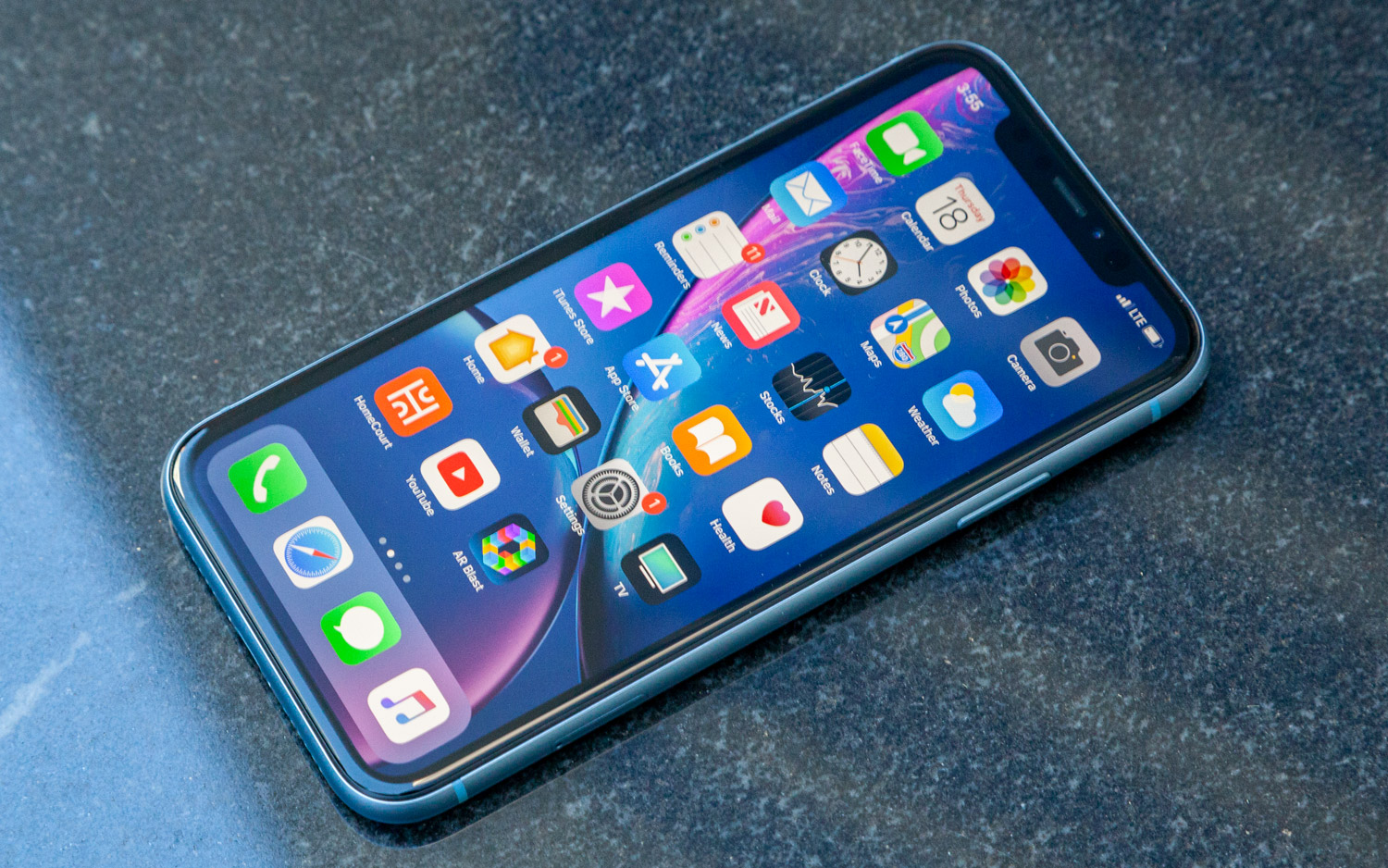
In an unusual disclosure in early January, Apple CEO Tim Cook warned the world that Apple's prior rosy forecast for the holiday quarter had proved to be inaccurate. This week, the company finally released the official figures for that period, and hopped on a phone call with financial analysts to provide a little more detail about what's going on with Apple's business.
These statements, while obviously self-serving, are legally mandated to be factual. And anytime Apple lets a bit of information about its business leak out, it's worth paying attention. In fact, we learned quite a few tidbits about Apple's iPhone business this week.
Don't settle for second best
It might've been Apple's second-best revenue quarter ever, but the iPhone sales drop was large enough that the 2018 holidays were eclipsed by sales in the holiday months of 2017 and 2016. Fifty-two billion dollars is nothing to sneeze at, but given that Apple is forecasting a sales slump for the current quarter as well, this is starting to feel like a replay of 2016, when iPhone sales dropped year-over-year for three straight quarters.
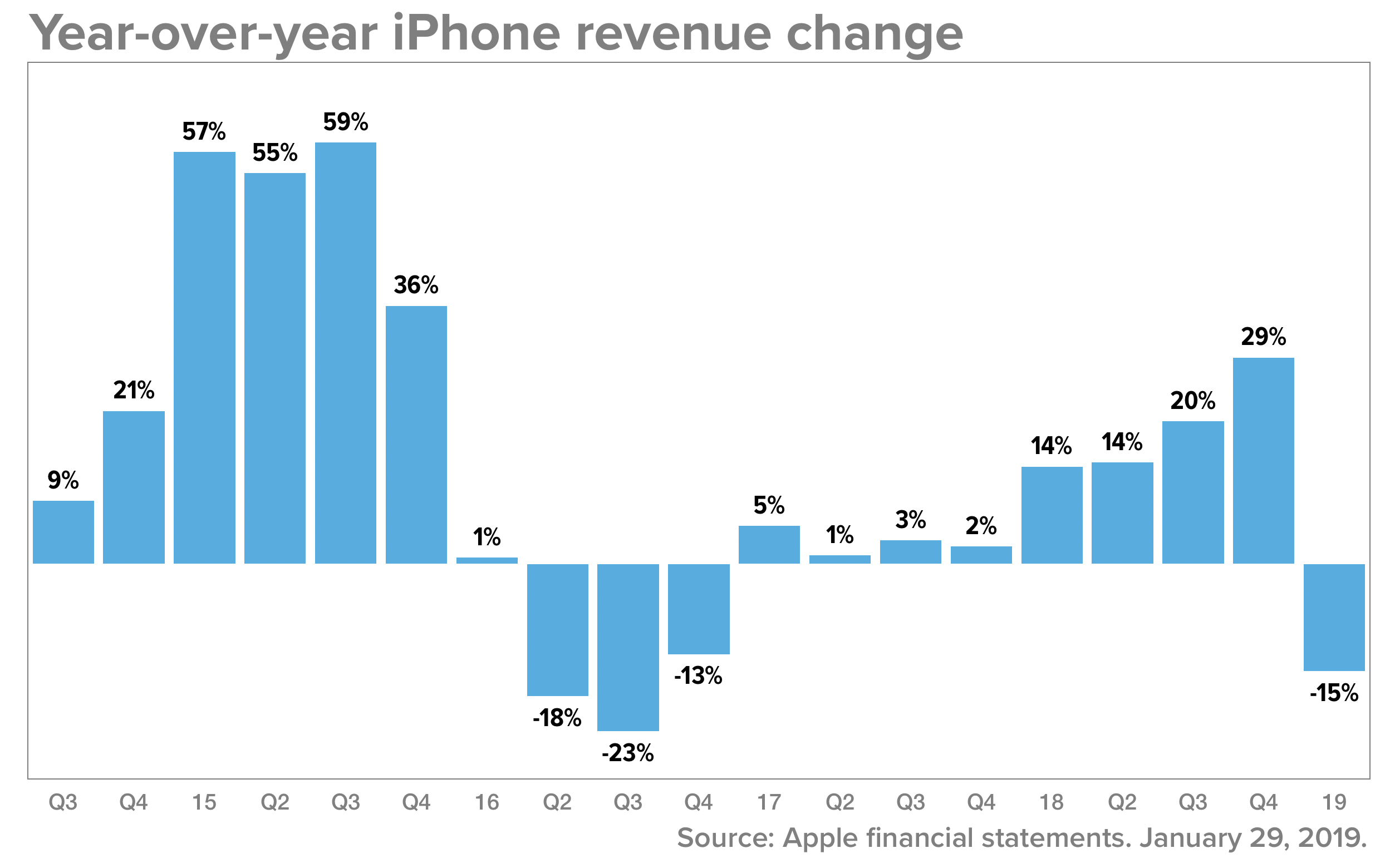
Even during the 2015 holiday season, just before iPhone sales began that three-quarter drop, Apple managed to eke out a tiny 1 percent revenue increase from the previous year. As far as I can tell, this is the first time in the iPhone's history that a holiday quarter went worse than the one that came before.
Still, for Apple, there's plenty of reason for hope. The shortfall in 2016 came in the year after the iPhone 6 and iPhone 6 Plus released enormous pent-up demand for a new iPhone design and a much larger iPhone screen. The next year's 6S models just didn't seem that different, and the pent-up demand had already been released.
This feels a bit like a replay, as the iPhone X was a big hit — and the follow-up iPhone XS feels like more of the same. Speaking of which, did you know that the iPhone XS was the worst-selling new iPhone?
iPhone XR: Maybe it's a hit?
Apple has said a couple of times that the iPhone XR has been a successful product, despite a lot of behind-the-scenes rumors that the phone hasn't sold as well as Apple expected. What may be true is that the overall shortfall in iPhone sales — something Apple most definitely didn't anticipate — has washed away the fact that the iPhone XR is anything but a flop.
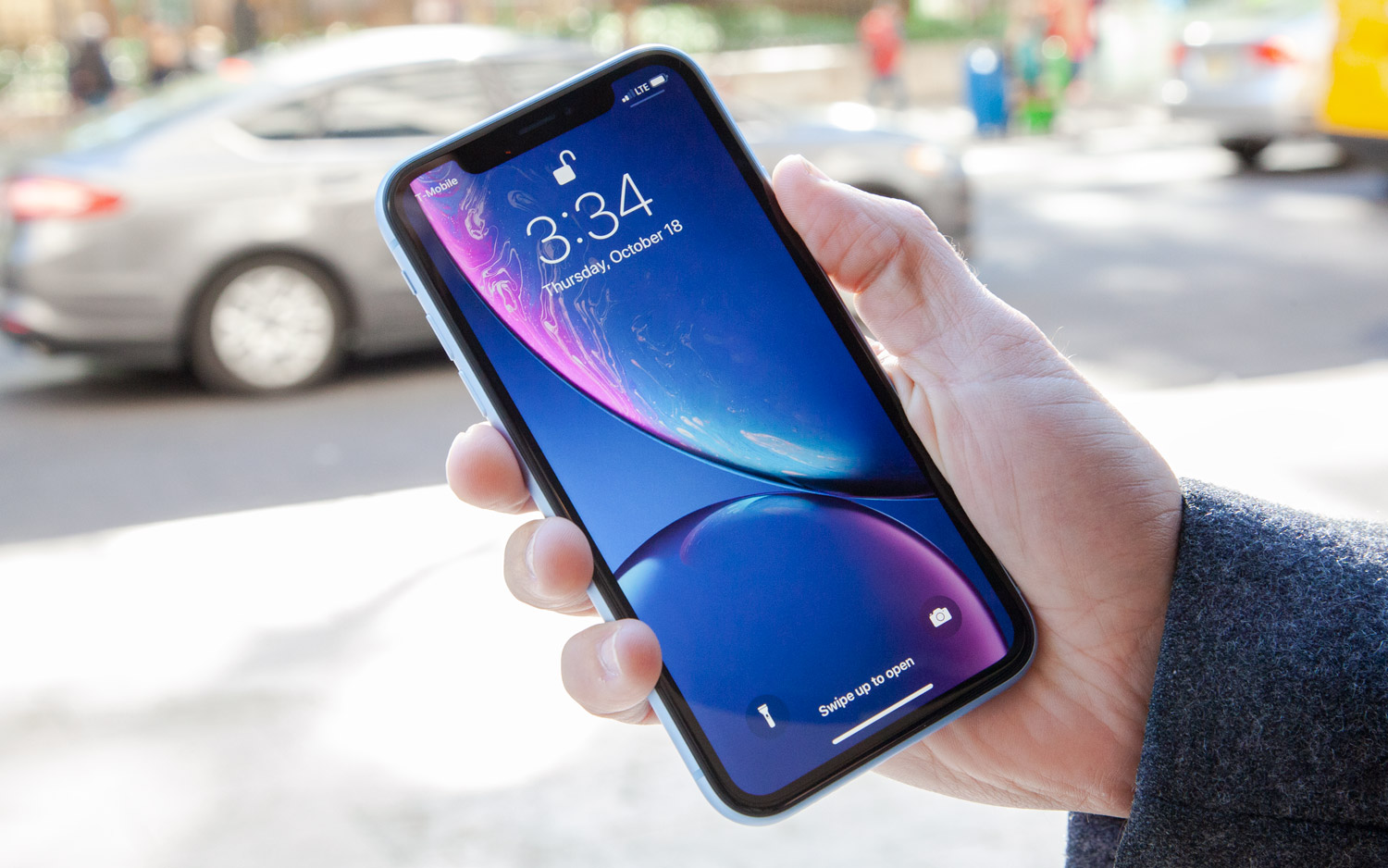
On Tuesday, Apple CFO Luca Maestri said: The iPhone XR is "our popular model," followed by the iPhone XS Max and then the iPhone XS. If potential phone buyers tend to be cooler on devices that look more or less the same as last year's models, this tracks — neither the iPhone XR nor the iPhone XS Max resemble any iPhone Apple released the previous year.
It seems to me that the flagship iPhone model is the iPhone XR until further notice.
In fact, the third-place performance of the iPhone XS makes it seem like Apple's newer models did manage to at least partially offset the impact of the iPhone X removing a lot of pent-up demand from the iPhone market. Perhaps things would've been much worse if Apple hadn't offered a large-size iPhone X-style model as well as a lower-cost and colorful alternative?
MORE: iPhone XS or XR: Here's Your Cheat Sheet
Without sales figures from Apple, it's hard to know for sure, but it seems to me that the flagship iPhone model is the iPhone XR until further notice. This jibes with the consensus among the iPhone reviewers I've read, who seem to agree that the iPhone XR is the best buy in the product line.
How many iPhones are there?
Apple stopped reporting unit sales this quarter, but it threw a bone to those of us who follow the company closely: Maestri said that the company will now disclose the total size of the "global active installed base of iPhone" — in other words, the number of iPhones in active use — from time to time.
The first disclosure: Apple says that more than 900 million iPhones are currently in use, and that this number was up year-over-year in each of its five geographic segments. Maestri also said that the number of total iPhones in use has grown almost 75 million in the past 12 months.
So don't be surprised if, in 2020, Apple puts out a news release announcing that the total global active installed base of iPhones has surpassed 1 billion.
iPhone pricing: No regrets ... almost?
Conventional wisdom says that the iPhone's sales declined because the price of iPhones is just too high. Of course, it's more complicated than that: China's economy, a strong dollar, and Apple's array of iPhone buying options all contributed to the story.
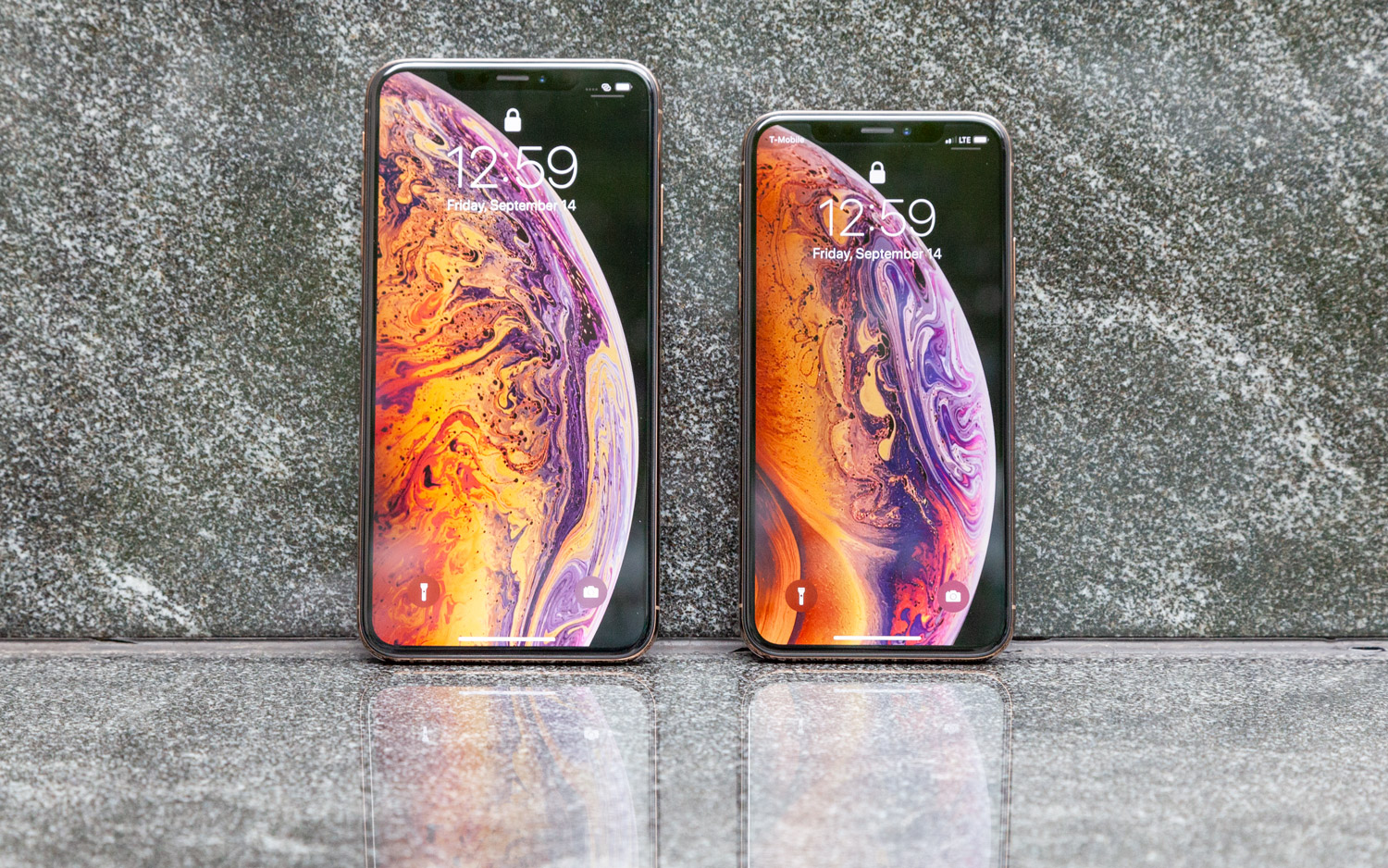
Still, analyst Steve Milunovich of Wolfe Research asked Cook about "the perception that you priced the new iPhones too high ... and do you feel that perhaps you pushed the envelope a little bit too far and might have to bring that down in the future?
Cook's response was fascinating: "If you look at what we did this past year, we priced the iPhone XS in the U.S. the same as we'd priced the iPhone X a year ago," he said. "The iPhone XS Max, which was new, was a $100 more than the XS, and then we priced the XR right in the middle of where the entry iPhone 8 and entry iPhone 8 Plus had been priced. So it's actually a pretty small difference in the United States compared to last year."
It's pretty clear that Apple isn't planning on cutting iPhone prices in the U.S. to spur demand. However, that doesn't mean things aren't going to change on a couple of fronts.
There's an awful lot of spin embedded in that statement. The iPhone XS was priced the same as the iPhone X, but that phone was priced far higher than any previous iPhone base model. The iPhone XS Max was indeed a $100 more than the XS... but Cook shrugs it off. But the real eye-popper for me was Cook's averaging of the prices of the iPhone 8 and iPhone 8 Plus to justify the cost of the iPhone XR. The truth is, the iPhone XR was the cheapest new iPhone and it cost more than the iPhone 8, which itself cost more than the iPhone 7.
I can scowl at Cook's logic, but it's pretty clear that Apple isn't planning on cutting iPhone prices in the U.S. to spur demand. However, that doesn't mean things aren't going to change on a couple of fronts.
First, Cook acknowledged that the strong dollar has caused Apple products in many markets to be more expensive than comparable products were a year ago, and said that this month the company has made the decision to "essentially absorb part or all of the foreign currency move as compared to last year and therefore get close or perhaps right on the local price from a year ago" in some markets for some products. So, iPhone prices may actually be coming down in some markets outside the U.S.
Second, there's Cook's acknowledgement that there's fundamentally a huge amount of sticker shock when presented with the full price of a smartphone, especially in markets that previously had cellular carriers subsidizing part of the cost of a device and burying it inside a monthly bill. Cook said that Apple is testing new ways to make it easier for customers to trade in old phones or pay in an installment plan. I've heard that Apple Stores are already de-emphasizing the outright price of phones and instead are promoting the prices on monthly plans.
Yes, the truth is that if you pay monthly or all at once you're paying more or less the same price. But some people can't afford to pay all at once, and many of us are susceptible to the buying psychology that makes it easier to spend $20 a month for two years rather than writing a check for $480.
Long-lived phones are the present (and future)
Rising prices, the elimination of subsidies, the realization that battery replacements are a cheap way to get more life out of a phone, and the natural slowdown in the pace of innovation from the early years of the category are all factors stretching out the length of time an average smartphone owner will keep their device.
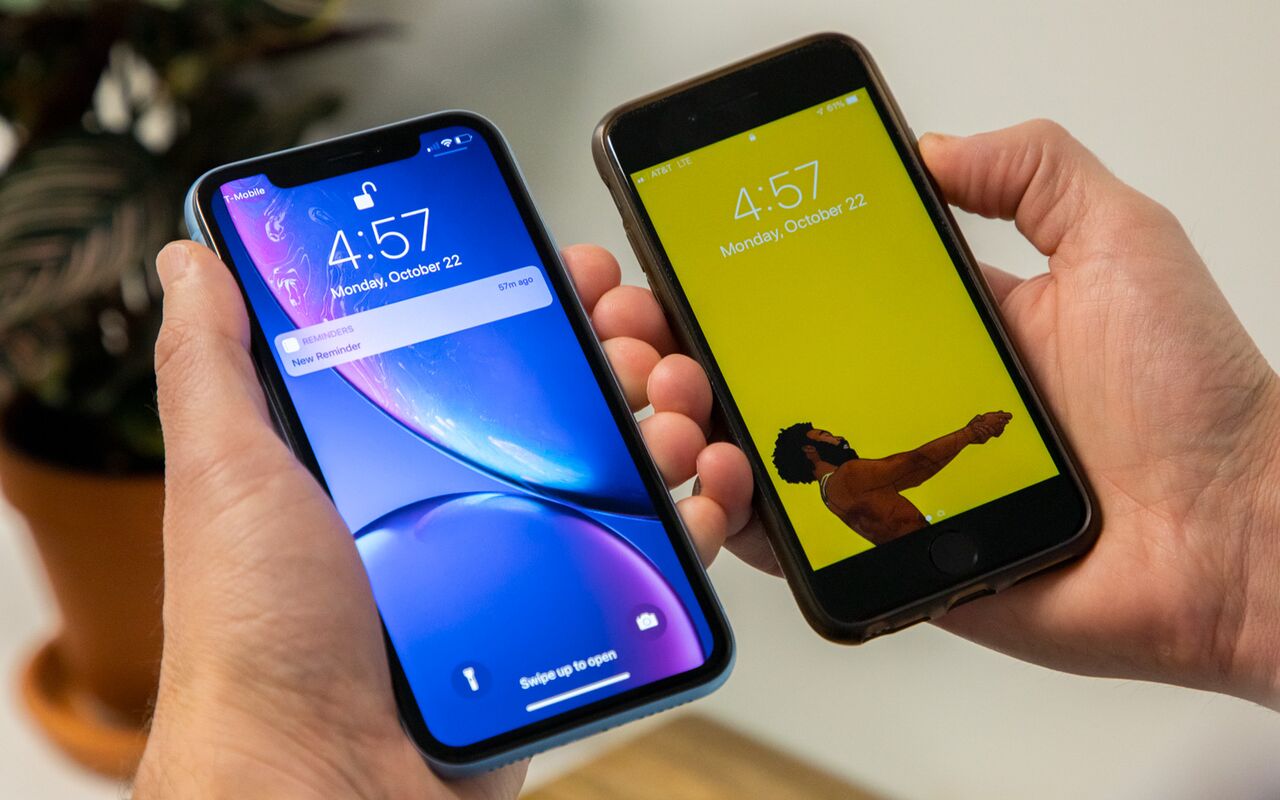
Apple would surely prefer you to replace your phone every year or two, but it has acknowledged that this is unlikely and is leaning in to the idea that phones are intended to last longer than ever before.
"I'm convinced that making a great product that is high quality, is the best thing for the customer and we work for the user."— Apple CEO Tim Cook
When analyst Shannon Cross asked Cook about Apple's statement at its annual iPhone launch event that it wanted iPhones to last as long as possible, she was giving Cook an opportunity to hedge or backtrack on that, in full view of a financial community with an eye on falling iPhone sales. He didn't blink.
MORE: Apple Faces the End of the iPhone Boom
"We do design our products to last as long as possible," Cook said. "The upgrade cycle has extended, there's no doubt about that.... where it goes in the future, I don't know, but I'm convinced that making a great product that is high quality, is the best thing for the customer and we work for the user, and so that's the way that we look at it."
I think we need to take Cook at his word here. In the early days of the smartphone era, getting a new phone every couple of years was common — in fact, the carrier plans at the time gave users no incentive from not upgrading every two years. Those days are over, and iPhone hardware (and iOS, the software that powers it) needs to be recalibrated to a world where people keep their phones four or five years instead.
Apple's not going to stop trying to create must-have upgraded iPhones every year. But the company seems legitimately committed to making the phone you buy be functional for longer than it's ever been before.
Credit: Tom's Guide
Sign up to get the BEST of Tom's Guide direct to your inbox.
Get instant access to breaking news, the hottest reviews, great deals and helpful tips.
Jason Snell was lead editor of Macworld for more than a decade and still contributes a weekly column there. He's currently running the Six Colors blog, which covers all of Apple's doings, and he's the creative force behind The Incomparable, a weekly pop culture podcast and network of related shows.
